5.5 million children out of school in Pakistan: UNESCO report
Pakistan also has the 3rd highest number of illiterate adults in the world.
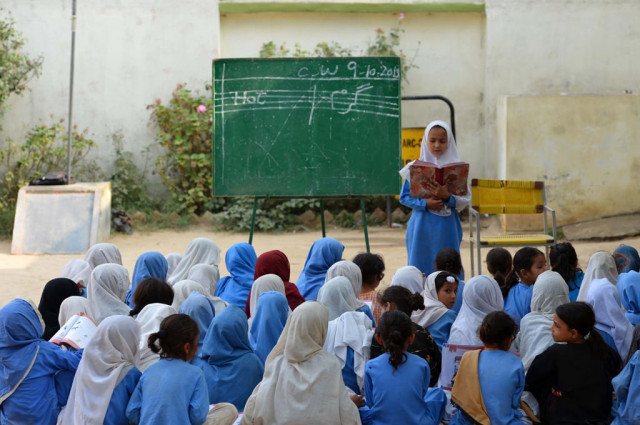
Report paints gloomy picture of education in country. PHOTO: AFP
These are just some of the findings of UNESCO’s latest report on the state of global primary education that puts Pakistan’s current educational crisis in a glaring, damning light.
[infogram url="" height="840"]
Pakistan is among the 21 countries facing an “extensive” learning crisis, according to the report. This encapsulates a number of indices, such as enrolment, dropout rates, academic performance and literacy. Pakistan scores low in every index.
Broadly, global standards of primary education seemed particularly severe in South and West Asia, and Western Africa. The countries in these regions, including Pakistan, are behind in virtually every index. Pakistan features along with 17 countries from sub-Saharan Africa, Mauritania, Morocco and India.
Public vs Private
Children in a low-fee private school outperform those that are enrolled in the top tier of government schools, laying bare the government’s crumbling educational infrastructure. However, even in private schools, 36% of grade 5 students cannot read a sentence in English, which they should have been able to do by grade 2.
Provincial Divides
The report exposed the inequalities in education within the country as well:
“Geographical disadvantage is often aggravated by poverty and gender. In Balochistan province, Pakistan, only 45% of children of grade 5 age could solve a two-digit subtraction, compared with 73% in wealthier Punjab province. Only around one-quarter of girls from poor households in Balochistan achieved basic numeracy skills, while boys from rich households in the province fared much better, approaching the average in Punjab.”
Teaching crisis
The children were not the only problematic indicators. In a list of countries that have the highest shortfall of teachers, Pakistan was the only non-African country to be on the list. Nigeria was highest on the list, requiring 212,000 teachers. The study said that between 2011 and 2015, 5.2 million primary school teachers are required globally to make sure that universal primary education is guaranteed.
Women’s health, education tied together
The report also provided further evidence to the relationship between education and health. In Pakistan, only 30% of women with no education believe they have a say over how many children they have, compared with 52% of women with primary education and 63% of those with lower secondary education.
Silver lining?
Amidst the crisis, the report also recommended programs that have mitigated the crisis. Save the Children’s Literacy Boost was fairly successful in implementing early grade reading programs in government schools. Similarly, children who had attended after-school reading camps coordinated by community volunteers showed greater learning gains in reading fluency and accuracy in both Pashto and Urdu than classmates in the same schools.
Despite the implementation of promising programs, the report stated that Pakistan is far away from achieving the 80% enrollment target it had set for 2015.

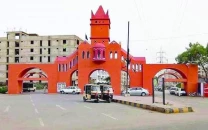
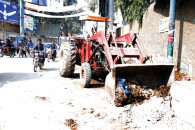


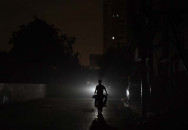
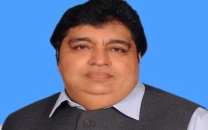





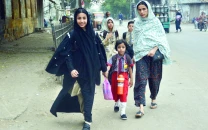






COMMENTS
Comments are moderated and generally will be posted if they are on-topic and not abusive.
For more information, please see our Comments FAQ